 Social Justice
Social JusticeFact-Checking Mis/Disinformation in the Age of AI: Uganda’s Journalists Step Up as Guardians of Truth
The **World Economic Forum** warns that AI-fuelled misinformation is now the most immediate global threat to democracy. In Africa, **CIPESA’s 2025 State of Internet Freedom** report shows how these same tools are widening civic vulnerabilities and deepening distrust online.
 Social Justice
Social JusticeThe Hidden Struggles of Children with Albinism and How Climate Change and Tax Policies Exacerbate Their Plight in Uganda
Two young girls in Uganda, living with albinism, are struggling to cope with the increasing impacts of climate change and discrimination. Their condition, which affects their skin, hair, and eyes, makes them particularly vulnerable to the harsh sun. As temperatures rise and UV radiation intensifies, these girls face a higher risk of skin cancer and other health problems. The article calls for greater awareness and support for children with albinism in Uganda.
 Social Justice
Social JusticeTrue-Lies of Gulu University’s DRDIP Implementation in Arua District
Last year, three community groups in Arua District's Ajia Sub County were identified as beneficiaries of ecological fish farming project, sustainable environmental management sub-component of Development Response to Displacement Impacts Project (DRDIP) which was designed to improve access to basic social services, expand economic opportunities and enhance environmental management for refugee-hosting communities and settlements.
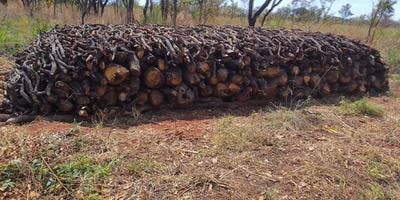 Accountability
AccountabilityHidden death trap of Northern Uganda’s future generations
Rampant illegal logging and charcoal production in Northern Uganda threaten vital indigenous tree species used in herbal medicine, while weak enforcement and corruption hinder efforts to curb the destructive trade. Environmental degradation and economic pressures collide in a complex challenge, calling for sustainable solutions to preserve both nature and local communities.
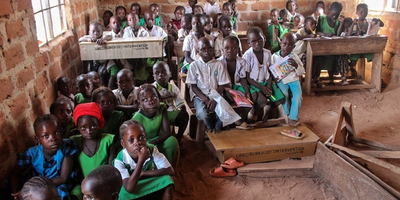 Social Justice
Social JusticeIs the UPE program breeding learning inequalities?
Uganda's Universal Primary Education (UPE) program struggles with funding and overcrowded classrooms. Despite significant enrollments since its introduction in 1997, concerns over the quality of education persist, with literacy rates below SDG targets. Some urban parents agree to pay additional charges to ensure their children receive a better education, but this raises questions about inequality. As the government grapples with the issue, the future of millions of UPE learners hangs in the balance. Discover the challenges and complexities of promoting inclusive and equitable education in Uganda's evolving landscape.
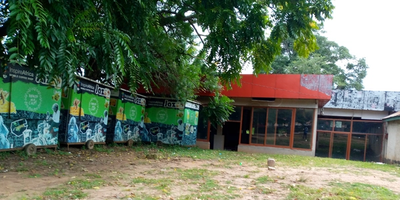 Accountability
AccountabilityARUA’S MULTI-MILLION NUSAF COFFEE PROJECT IN MESS
In 2017, the Ugandan government funded a coffee shop project in Arua, which remains incomplete. Despite training local youths in business skills, the facility has now become a waste dumping site, leaving the trainees without opportunities to utilize their knowledge
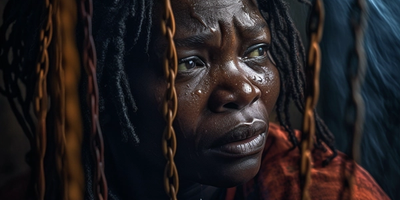 Social Justice
Social JusticeHow Kalangala Is ‘Silently’ Becoming a Hub For Domestic Human Trafficking In Uganda
In Ssese Islands of Kalangala district, a dark secret lies hidden beneath the surface. Children and young women, trafficked from various regions, find themselves trapped in a web of exploitation across Mazinga, Bubeke, and Bugoma islands. Forced into labor, commercial sex, forced marriage, and drug trafficking, these victims are caught in a ruthless cycle of abuse. NGOs like Kalangala Human Rights Defenders and Maria Theresa Foundation Kalangala work tirelessly to rescue and resettle survivors, but the fight against human trafficking in Uganda's idyllic islands continues.
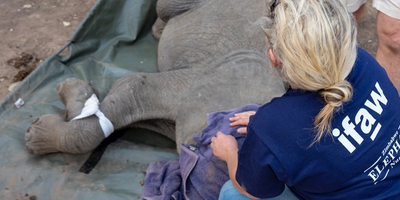 Climate Change and Environmental Crime
Climate Change and Environmental CrimeUganda's Ivory Pipeline: Connecting DR Congo's Poaching Epidemic to Asia's Demand
The alarming poaching crisis in DR Congo sees over 30,000 elephants killed annually for their ivory, fueling a smuggling network through Uganda's West Nile region to meet rising demand in Asia. Despite international efforts, this illegal trade not only endangers elephants and ecosystems but also poses significant public health risks.
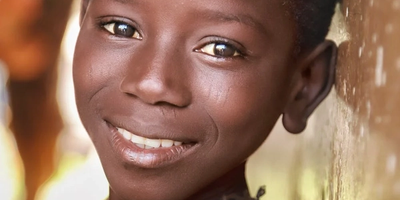 Human Rights
Human RightsPROTECTION OR ABUSE? Why Families In Masaka Region Take Disabled Children For Birth Control
In the Masaka region, families are secretly forcing disabled male and female adolescents to undergo birth control procedures like vasectomy and female sterilization, as well as other inhumane methods to prevent sexual activity. This issue is prevalent in Masaka, Kalangala, Kyotera, and Rakai. Parents and guardians justify their actions, believing disabled teens are incapable of raising children. Although some affected teens have spoken up, local organizations like MADIPHA and other NGOs struggle to intervene due to the secretive nature of these practices.
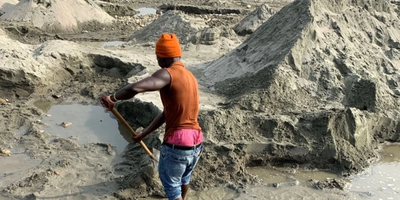 Social Justice
Social JusticeThe dark trade of sand mining
Sand. Is it a blessing or a curse? Whereas it’s a precious raw material for construction, tiles, glass and computers, sand has become a different ball game for Ugandans when it gets out of the ground or Lake Victoria. As Gerald Tenywa found out in this investigation, the trade in sand is poorly regulated and is benefiting a few people including foreigners who operate in cartels backed by politicians.